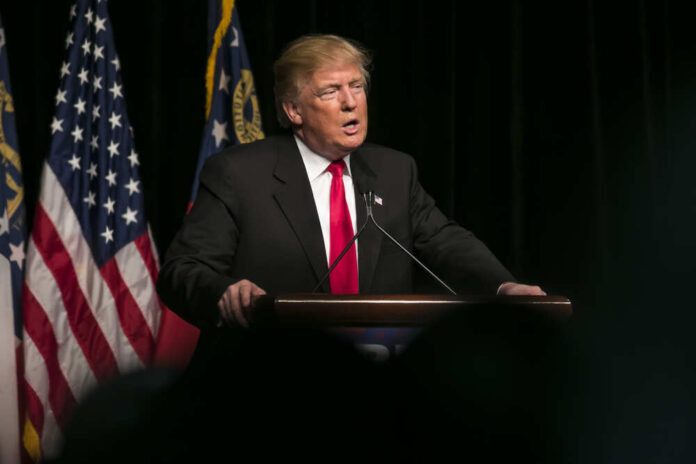
On Monday, Donald Trump’s attorneys said that it would be “a practical impossibility” for their client to pay the $400 million civil fraud penalty that was levied on him in New York.
The lawsuit was first brought against the former president in 2022 by New York Attorney General Letitia James. The suit accused Trump, his two adult sons and some officials at the Trump Organization of a scheme that took place over years in which he inflated the values of his assets and net worth so that he could obtain more favorable terms on business loans.
Trump maintains that he’s innocent, but Judge Arthur Engoron found him liable for fraud. The penalty handed down was $355 million. With interest, that totaled more than $454 million.
In order to pursue an appeal in the case, Trump must get a bond of $464 million that would cover his fines as well as the disgorgement for his sons.
But, it appears as though Trump isn’t going to be able to come up with that money. His legal team previously requested that he pay only a portion of that total, $100 million, so they could launch their appeal.
While Trump doesn’t have to pay the entire amount of the fine in order to launch his appeal, he does have to find a company that would guarantee to the court that they would pay the money if the appeal isn’t successful.
To get a bond like this, people have to put up assets in exchange — just in case they don’t end up paying it back.
In the Monday court filing, though, Trump’s lawyers said that they went to roughly 30 companies to get a bond, but said they’ve been turned away. That’s because they’ve need to come up with roughly $1 billion in cash, which they don’t have.
If Trump isn’t able to come up with the money to launch an appeal — or isn’t able to get a bond for it — James said she would move to seize the former president’s assets after the Monday deadline. As she said recently:
“If he does not have funds to pay off the judgment, then we will seek judgment enforcement mechanisms in court. And we will ask the judge to seize his assets.”
Once the 30-day grace period on the payment ends next week, James could immediately begin to enforce the judgment, Adam Pollack, a former assistant attorney general in New York, told NPR recently.
She’ll also have many different tools at her disposal to force him to pay. One example is that James could serve him with a restraining notice that would ultimately restrict how he could spend money until he pays the full bond.
As Pollock explains:
“The restraining notice would say: ‘Don’t spend money, don’t fill up your jet at the pump, until you pay the state of New York, or you’ll be held in contempt of court.’ And my impression is that … Engoran, the judge here in New York, would be quick to hold him in contempt of court.”













